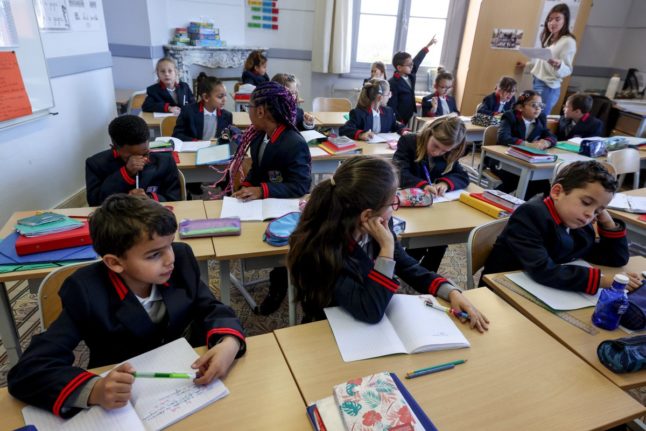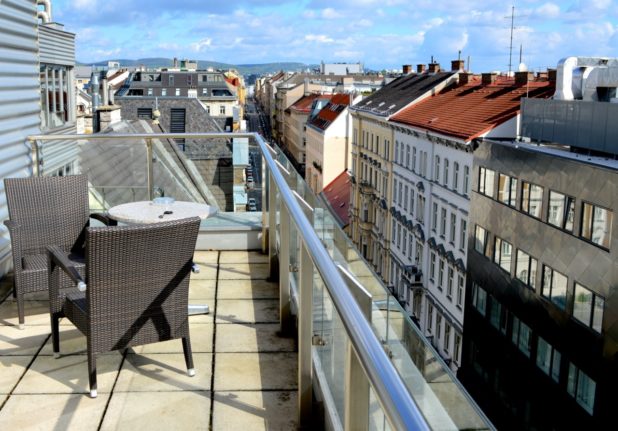At the beginning of 2023, 34.2 percent of Vienna’s residents were foreign nationals, 39.3 percent were born abroad, and 44.4 percent were of foreign origin, which means that they either held foreign citizenship or were Austrian nationals born abroad, according to official data.
So, it’s understandable that many Viennese households do not have German as a first – or at least as the only – language, with children often growing up in multicultural and multilingual homes.
Foreign parents frequently speak their mother tongue at home, and the children will learn German at school, first in kindergarten and then improve their local language skills once they reach compulsory school.
Once kids are about to start primary school, their German skills are assessed. If they are deemed unable to follow lessons, the school’s head teacher categorises them as an “exceptional pupil”, who will receive more German classes and be graded only in a subject in which an assessment is possible.
READ ALSO: Four things foreigners in Austria need to know about the education system
Which districts have the highest proportion of ‘exceptional pupils’?
After an enquiry from the Viennese branch of the centre-right ÖVP (Austrian People’s Party) to the City Councillor for Education, new data is available on how kids have been struggling with German in schools.
There were 7,145 “exceptional” pupils out of around 20,000 first-graders in Vienna’s primary schools in the 2022/23 school year, corresponding to more than a third. 4,767 (66.7 percent) were born in Austria, and 4,810 (67.3 percent) had attended kindergarten for more than one year.
The highest percentage of primary school children with German language issues in the 2022/23 school year were in Margareten (33.9 percent) – or 366 out of a total of 1078 pupils. This is followed by Ottakring (27.5 percent), Brigittenau (26.86 percent), Meidling (24.62 percent) and Favoriten (24.51 percent).
These are followed by the districts of Rudolfsheim-Fünfhaus (23.87 percent), Hernals (19.62 percent) and Leopoldstadt (18.98 percent). In Landstraße, 16.32 percent are “exceptional” pupils; in Simmering, 15.81 percent and Penzing, 15.77 percent.
READ ALSO: What are the best German classes for you in Vienna?
The rest of the ranking was as follows: Alsergrund (14 percent), Floridsdorf (13.6 percent), Liesing (13.55 percent), Döbling (13.31 percent), Donaustadt (13.22 percent), Neubau (11.94 percent), Josefstadt (11.66 percent), Währing (11.28 percent), Hietzing (10.30 percent), Wieden (9.03 percent) and Innere Stadt (9.01 percent).
In the last school year, Vienna-Mariahilf had the lowest percentage of exceptional primary school pupils, with only 77 out of 1,099 children – 7.01 percent.
According to the City of Vienna, 3,409 of the primary school pupils in Vienna judged to be “exceptional” had Austrian citizenship.
‘Children still don’t learn German properly’
“Thousands of children are born here, grow up here, go to kindergarten here for years and still do not learn enough German to follow the lessons by the time they start school,” said ÖVP Education Spokesperson Harald Zierfuß.
“We have long been calling for a massive increase in the number of German teachers in kindergartens and compulsory kindergarten attendance from the age of three for all those who do not speak sufficient German. A lack of German language skills and poor educational success often lead to unemployment and a lack of prospects for young people,” said ÖVP Vienna leader Karl Mahrer.
READ ALSO: How to register your child for Vienna’s free summer German classes
In January, Vienna has already taken measures, including in the kindergarten sector, Deputy Mayor Christoph Wiederkehr said. For example, the number of language support staff has increased: 397 are currently employed in the nursery sector, which is set to rise to 500 by the end of 2025. Summer German courses in Vienna also offer language support for pupils.
Many of the children end up taking German classes for their first school year and move on to regular classes shortly after – there is still no data on how this affects their schooling and job prospects later on and nothing to indicate that it puts them at a disadvantage in the medium and long term. However, the German in schools issue is a hot topic in Austria and a raised flag by right wing politicians.



 Please whitelist us to continue reading.
Please whitelist us to continue reading.
Member comments